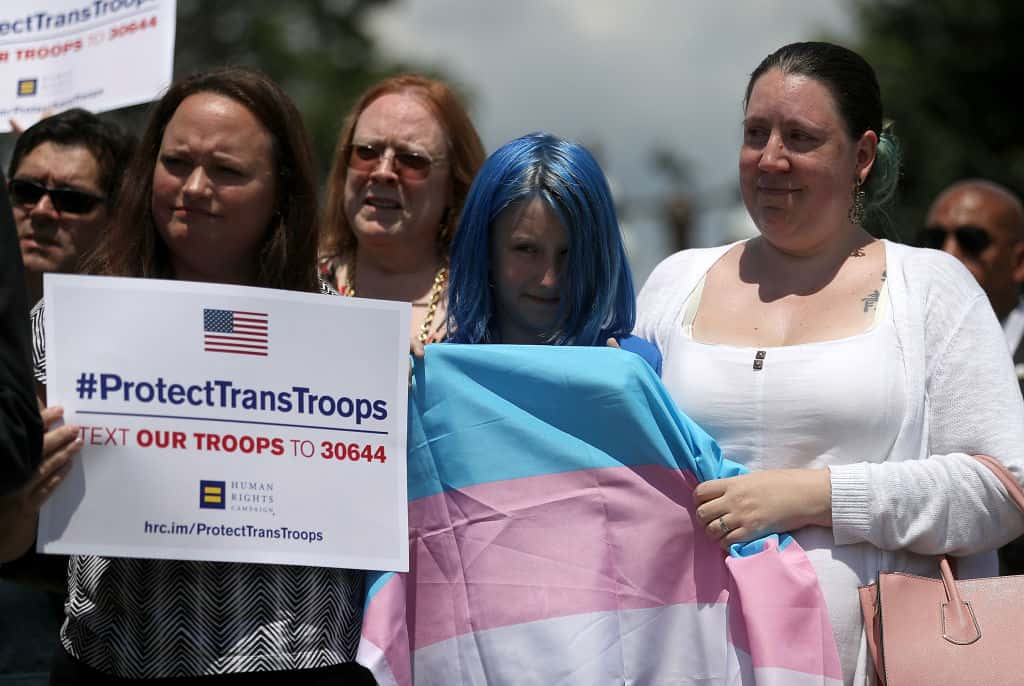Vermont to cover 16 types of sex reassignment surgeries for children under Medicaid

Department of Vermont Health Access policy director Nissa James said a new rule that was proposed last month will allow children to begin sex reassignment surgeries at younger ages if they are covered by Medicaid and have parental consent.
The sex reassignment surgeries, as covered by Medicaid, include at least 16 types of genital surgery, breast augmentation, or mastectomy, according to a report by the Burlington Free Press.
Dr. Rachel Inker, who heads the Transgender Health Clinic at the Community Health Centers of Burlington, applauded the new rule. “Having young people have to wait until they were 21 just didn’t really make any sense,” she said.

Requirements to be eligible for Medicaid coverage of sex reassignment surgeries include a referral from a “qualified mental health professional" as well as a clinical evaluation stating the surgery is a "medical necessity."
The report also states the documentation of the “qualified mental health professional” must include “diagnosis of persistent gender dysphoria” and outline the child's “participation in a treatment plan in consolidating gender identity.”
Furthermore, the mental health professional must be able to demonstrate the child has been presented with all possible “treatment options and implications" before taking the decision.
LGBTQ activists in Vermont have so far been successful in convincing lawmakers that normal counseling for children experiencing discomfort with their natural sex must be banned, according to Breitbart News.

With the newly proposed laws, the activists are seeking to crush the notion that children who are uncomfortable with their biological sex are psychologically impaired.
They are also pushing the narrative that the high rate of suicidal ideation found in the trans population directly stems from the lack of immediate affirmation of their perceived gender identity, despite several studies indicating most of these children come from families with considerable psychological dysfunction.
In August, Dr. Lisa Littman, assistant professor of behavioral and social sciences at Brown University, published a study that found at least 87 percent of teens came out as transgender after spending loads of time on social media and after "cluster outbreaks" of gender dysphoria within their friend circles.
A majority of the teens who claimed to be transgender, per the study, had already been diagnosed with at least one mental health disorder. That said, the study enraged a number of LGBTQ activists.
In a conversation with Breitbart News in September, Dr. Quentin Van Meter, a pediatric endocrinologist from Johns Hopkins University, said ever since gender ideology has been forced on the American populace, “every single transgender patient who has come to me has come from a totally dysfunctional family.”
“There’s nothing normal about the environment where these children are brought up,” Van Meter explained. “There are emotional traumas left and right. It is so obvious that what we’re doing is painting over the trauma.”
In states that have passed therapy bans, children and teens who present for counseling about gender issues are immediately "affirmed" as their perceived gender without the standard evaluation process that occurs while counseling young people. Those mental health professionals who choose to explore possible reasons for the child's gender dysphoria could risk losing their license to practice.
Dana Kaplan, executive director of Outright Vermont, said it was necessary to pass the proposed rule because a "staggering" percentage young people claiming to be of another gender have contemplated suicide.
“When a kid gets to the point where they say ‘I really, really need this to be comfortable in my body’ — again, why would we get in the way of that?” he said.










